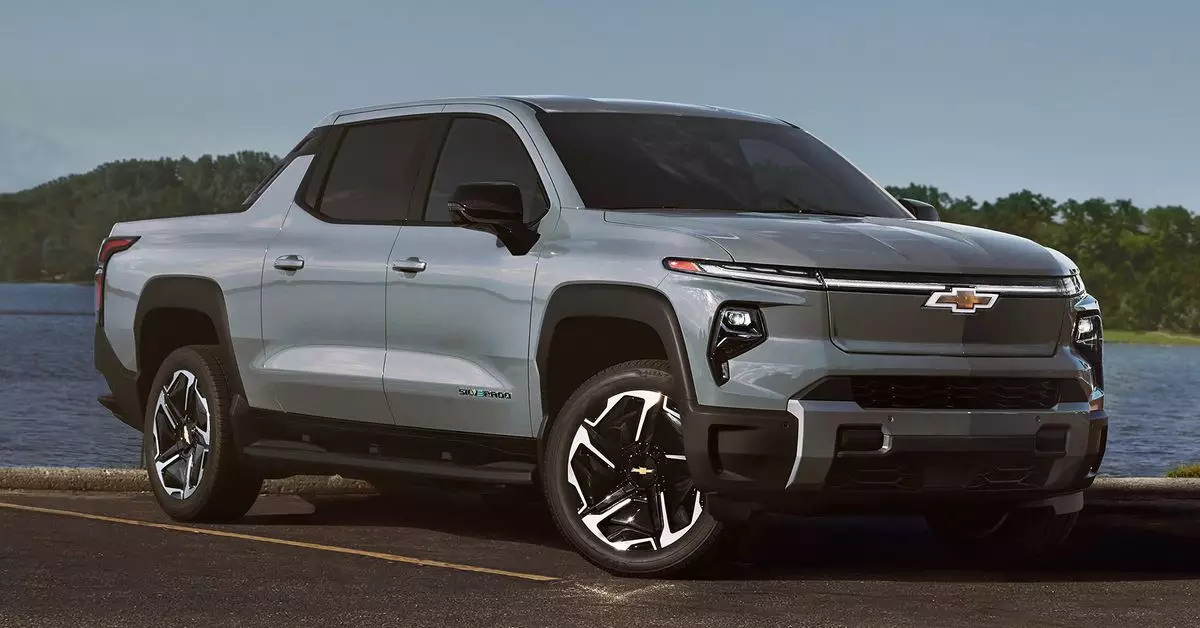In a market increasingly dominated by electric vehicles (EVs), Chevrolet’s decision to introduce a more affordable version of the Silverado EV could be a significant game changer. Starting at $57,095 for the 2025 model year, this new standard range Work Truck (WT) version aims to capture a broader audience looking to transition to electric driving without breaking the bank. Shifting from the previous 2024 models—which were primarily premium options priced near the $100,000 mark—Chevy’s strategy reflects an understanding of customer demand for more economical electric trucks.
Chevrolet’s introduction of multiple configurations of the Silverado EV demonstrates a keen awareness of the diverse needs within the truck market. Unlike the earlier single-trim offerings of the 2024 model, the 2025 lineup features various options that cater to different preferences and budget ranges. In addition to the standard Work Truck, buyers can choose a new RST trim starting at $89,395, providing a mix of power and range. The more luxurious features associated with the RST model, along with a respectable EPA estimated range of 390 miles, make it an appealing choice for those willing to invest more.
Importantly, the Silverado EV also includes a Max Range variant capable of traveling an impressive 492 miles for a slightly higher price of $77,795. This flexibility allows consumers to balance features, performance, and cost—a critical factor as electric vehicle technology evolves.
Chevrolet’s pricing strategies bear similarities to Ford’s approach with its F-150 Lightning, which also offers a baseline “Pro” version, beginning at approximately $54,995. Ford’s offering emphasizes functionality, providing essential features without high-end frills. This comparison sheds light on the competitive landscape, where automakers strive to provide value while pushing sustainability initiatives forward.
In particular, the Silverado EV LT, likely to become a familiar sight on dealer lots, stands out with its 408-mile EPA-estimated range, robust towing capabilities of 12,500 pounds, and a payload capacity of 1,800 pounds. Such specifications not only highlight Chevrolet’s ability to maintain performance standards traditionally associated with gasoline-powered trucks but also reassure potential buyers of the reliability of electric options in heavy-duty applications.
One must also consider the technological landscape of these new electric offerings. While Chevrolet’s Silverado EV boasts powerful specs, details regarding fast charging capabilities remain unclear, particularly regarding whether they will support the emerging North American Charging Standard (NACS) for 2025. Additionally, advanced features like SuperCruise, an automated driving technology, will require further investment through premium packages, which could deter budget-conscious buyers.
Ultimately, Chevrolet’s aggressive pricing and diverse model offerings indicate a strategic leap toward democratizing electric truck ownership. By embracing a wider range of options, from work-oriented versions to higher-end trims, Chevrolet is poised to make a significant impact in the EV market. As the electric vehicle landscape continues to grow, initiatives like these not only support environmental sustainability but also push the boundaries of innovation in the automotive industry. The success of the Silverado EV could very well set the stage for future developments in electric trucking.


Leave a Reply
You must be logged in to post a comment.